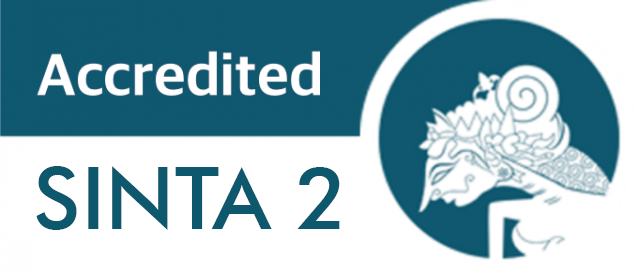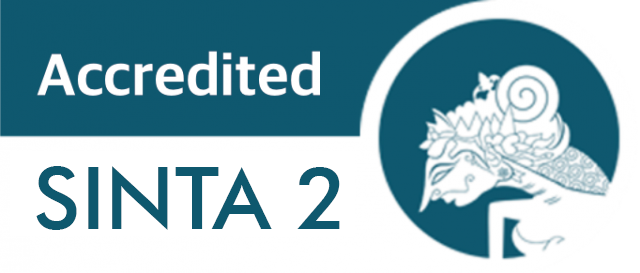Assertive Community Treatment for Patients with Schizophrenia
Downloads
Abstracts
Introductions: Schizophrenia is a long-term, severe mental disorder involving a breakdown in the relation between thought, emotion, and behavior, leading to faulty perception, inappropriate actions and feelings, withdrawal from reality and personal relationships into fantasy and delusion, and a sense of mental fragmentation. Methods: The treatment of schizophrenia requires a holistic approach such as psychopharmacology therapy and psychosocial rehabilitation. The combined treatment has some advantages compared to medication alone. Assertive Community Treatment is one of the psychosocial rehabilitation. It is a healthcare program with multidisciplinary approaches and team members. Results: They have got to work as a team to provide intensive care to patients with severe mental disorders. They serve to treat the patient holistically in the patient's environment rather than in the hospital. Conclusions: Some studies showed that Assertive Community treatment could reduce hospitalization, improved the quality of life of patients, and reduced the symptoms experienced by the patients.
M. Thornicroft, G & Tansella, "What are the arguments for community-based mental health care ?,” World Heal. Organ. Reg. Off. Eur. (Health Evid. Netw. report), no. August, pp. 1–25, 2003.
G. R. Bond and R. E. Drake, "The critical ingredients of assertive community treatment,” World Psychiatry, vol. 14, no. 2, pp. 240–242, 2015.
(2013). Riset Kesehatan Dasar (RISKESDAS) 2013. Laporan Nasional 201. Badan Penelitian dan Pengembangan Kesehatan, "No Title,” 2013.
M. J. Bennett, "Mental health services in HMOs.,” Am. J. Psychiatry, vol. 135, no. 10, pp. 1249–1250, 1978.
A. S. Bellack, "No Title,” Psychosoc. Rehabil., 2008.
R. (1998). Hogarty, G., & Ulrich, "No Title,” limitations antipsychotic Medicat. Schizophr. relapse Adjust. Contrib. Psychosoc. Treat., 1998.
D. Salkever et al., "Assertive community treatment for people with severe mental illness: The effect on hospital use and costs,” Health Serv. Res., vol. 34, no. 2, pp. 577–601, 1999.
& R. P. (2009) Sadock BJ, Sadock VA, "No Title,” L. W. &Wilkins., Ed. New York, 2009.
(2014). Diagnostic and Statistic Manual of Mental Disorder 5th edition. Washington American Psychiatric Association, "No Title.”
K. Lenroot, R., Bustillo Juan., Lauriello John., Samuel M.D., "No Title,” 2003.
(2004). Lehman, A.F., Lieberman, J.A., Dixon, L.B., McGlashan, T.H., Miller, A.L., Perkins, D.O., Kreyenbuhl, J., Mclntyre, J.S., Charles, S.C., Altshuler, K. And Cook, I., "No Title,” Pract. Guidel. Treat. partients with Schizophr. Am. J. Psychiatry, 2004.
J. M. Tandon R, "No Title,” Extrapyramidal side Eff. antipsychotic Treat. scope Probl. impact outcome, 2002.
R. P. C. P. R. Smith, T. E., Bellack, A. S., & Liberman, "No Title,” Soc. Ski. Train. Schizophr. Rev. Futur. Dir. Clin. Psychol. Rev., 1996.
W. Glynn, S.M., Drebing, C. & Penk, "No Title,” Psychosoc. Rehabil., 2009.
L. H. P, "No Title,” Fam. Psychoeduc. Serious Ment. Illness., 2009.
& C. L. Fioravanti M, Carlone, O, Vital B, Cinti ME, "No Title,” A meta-analysis Cogn. deficits adults with a diagnosis Schizophr., 2005.
(2013). Georgia Program Tool Kit For Assertive Community Treatment (ACT) Teams Georgia. Berry, F.W., "No Title,” Georg. Progr. Tool Kit Assert. Community Treat. Teams Georg. , 2013.
W. Allness, D., & Knoedler, "A manual for ACT start-up -based on the PACT Model of community treatment for persons with serious and persistent mental illness,” 2013.
D. B. Chen, F.P. & Herman, "Discharge practices in a time-unlimited intervention: The perspectives of practitioners in Assertive Community Treatment,” 2012.
R. E. Bond, G. R., & Drake, "The critical ingredients of assertive community treatment. World Psychiatry, 14(2), 240,” 2015.
Kent, A., "Assertive community treatment in UK practice: Revisiting, Setting up an Assertive Community Treatment Team,” 2005.
Botha., Koen L., Oosthuizen., Joska J., Hering L., "Assertive community treatment in the South African context.,” 2008.
M. (2002). Burns, T. & Firn, "Assertive Outreach in Mental Health. A Manual for Practitioners. Oxford: Oxford University Press,” 2002.
M. van Veldhuizen, J.R. & Bahler, "Flexible Assertive Community Treatment (FACT) Manual - Vision, Model, Practice and Organisation,” 2013.
F. W. Berry, "Georgia Program Tool Kit For Assertive Community Treatment (ACT) Teams Georgia. ,” 2013.
R. E. Teague, G. B., Bond, G. R., & Drake, "Program fidelity in assertive community treatment: Development and use of a measure. American Journal of Orthopsychiatry,” 1998.
P. D. Phillips, S.D., M.S.W. Barbara J. Burns, Ph.D. Elizabeth R. Edgar, M.S.S.W. Kim T. Mueser, Ph.D. Karen W. Linkins, Ph.D. Robert A. Rosenheck, M.D. Robert E. Drake, M.D., Ph.D. Elizabeth C. McDonel Herr, "Moving Assertive Community Treatment Into Standard Practice. Psychiatric Services,” 2001.
Copyright (c) 2023 Monika Lukut, Agustina Konginan

This work is licensed under a Creative Commons Attribution-ShareAlike 4.0 International License.
1. Copyright of this journal is possession of the Author, by the knowledge of the Editorial Board and Journal Manager, while the moral right of the publication belongs to the author.
2. The journal allows the author(s) to retain publishing rights without restrictions.
3. The articles are published under a Creative Commons Attribution Share-Alike (CC BY-SA) license. Many research funding bodies prefer the CC BY-SA license because it allows for maximum dissemination and re-use of open access materials. Users are free to share (copy, distribute, and transmit) and remix (adapt) the contribution under this license, including for commercial purposes, as long as they attribute the contribution in the manner specified by the author or licensor.




























